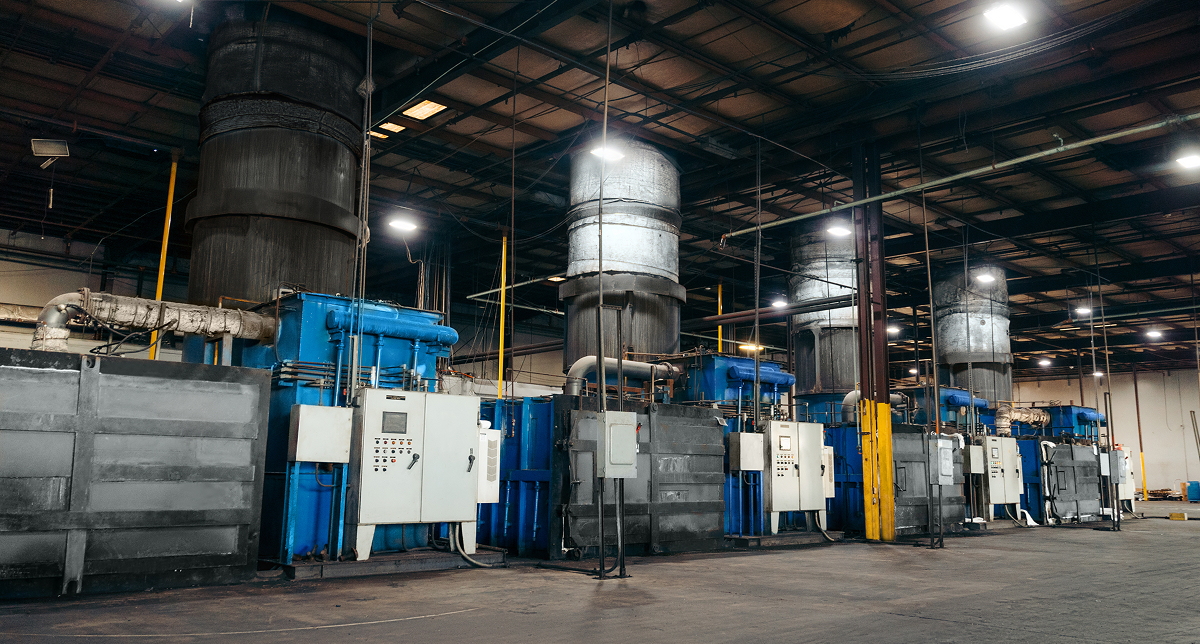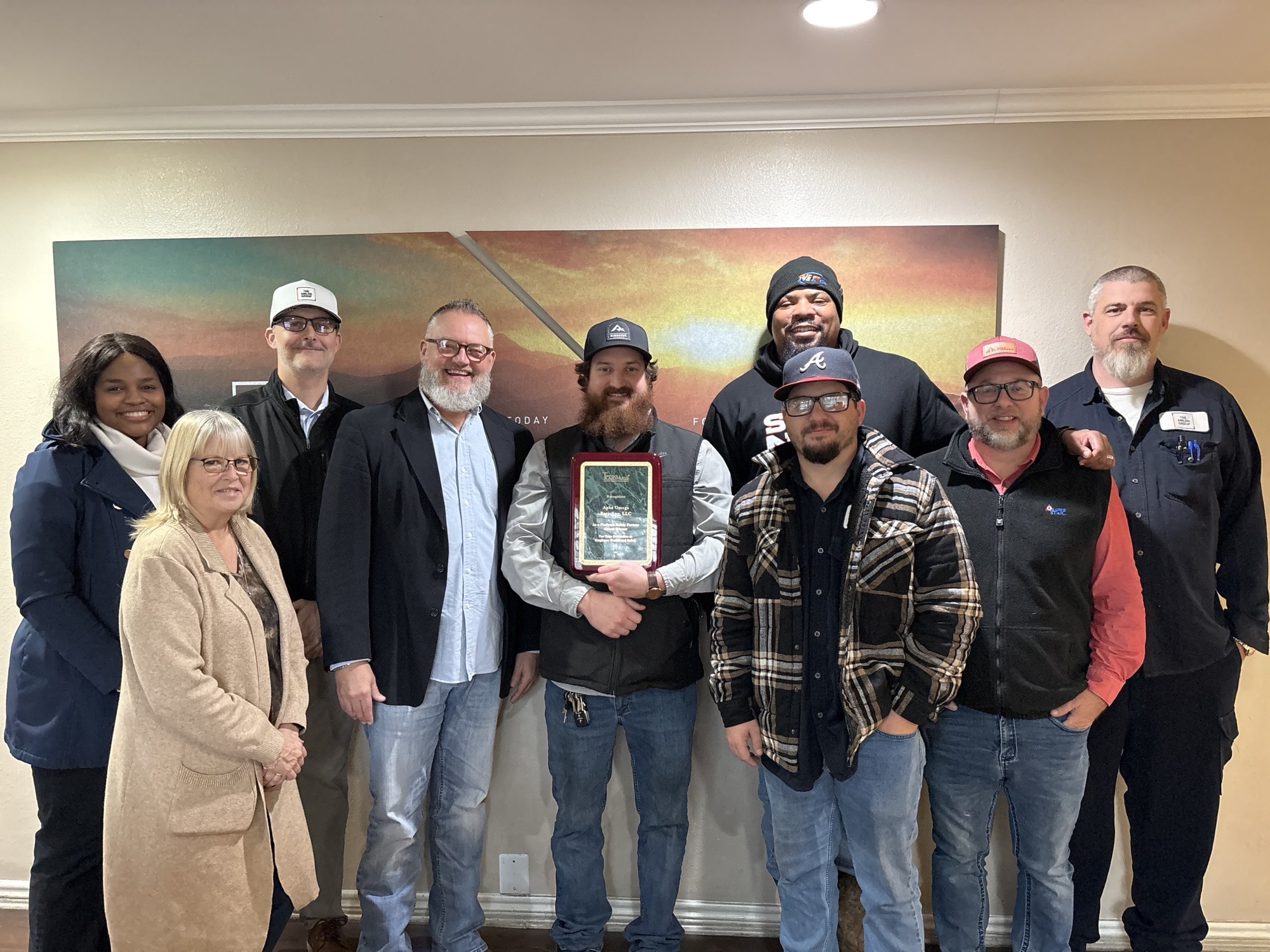The semiconductor manufacturing landscape has never been more complex or more consequential. With the CHIPS Act driving unprecedented domestic investment and sustainability mandates reshaping operational priorities, today’s semiconductor leaders face a critical question: How do you transform waste management from a compliance checkbox into a competitive advantage?
The answer lies not just in what you do with your waste, but who you partner with to handle it. Industry leaders are discovering that working with experienced waste processing partners like Amlon Group, which has spent over four decades perfecting sustainable waste management solutions, can fundamentally transform their operational approach.
The Hidden Impact of Waste Management on Manufacturing Excellence
Modern semiconductor fabrication generates an intricate mix of waste streams that would challenge even the most sophisticated waste management systems. From copper and cobalt sulfate solutions to precious metal-bearing residues, each waste type requires specialized handling, processing, and regulatory compliance. Yet many manufacturers still approach waste management as a fragmented, vendor-by-vendor decision rather than a strategic partnership opportunity.
This fragmented approach creates hidden costs that extend far beyond disposal fees. Consider the administrative burden of managing multiple vendor relationships, each with different pickup schedules, documentation requirements, and compliance standards. Then factor in coordinating various waste streams across different service providers, often resulting in inefficient transportation routes and increased carbon footprint.
Most critically, this approach introduces unnecessary risk. When waste management is dispersed across multiple vendors, visibility decreases and accountability becomes diffused. A single compliance failure or processing error can cascade through your entire operation, potentially impacting production schedules and regulatory standing.
The Strategic Advantage of Integrated Waste Processing
Leading semiconductor manufacturers are discovering that consolidating waste streams with a single, experienced processing partner delivers measurable operational benefits. This approach transforms waste management from a cost center into a strategic asset that supports broader manufacturing objectives.
Operational Efficiency Through Simplification
When a single partner can handle multiple waste types, from solid metal bearing materials and catalyst residues, the operational benefits compound quickly. Unified pickup schedules reduce facility disruption. Consolidated documentation streamlines compliance reporting. Single-point accountability eliminates the finger-pointing that can occur when multiple vendors are involved in your waste chain.
Enhanced Risk Management
Semiconductor manufacturing operates on razor-thin margins where any disruption can have financial impact. Partnering with an established waste processor that has decades of experience handling industrial waste streams provides the reliability and predictability that manufacturing operations demand. This is particularly crucial during major maintenance turnarounds or capacity expansions, when waste volumes can spike dramatically.
Amlon’s 40-plus year track record in industrial waste processing provides the operational stability that semiconductor manufacturers need. Their facilities are designed specifically to handle the high-volume demands of large industrial projects, with ample storage capacity and flexible processing capabilities that can accommodate sudden volume increases without service disruption.
Geographic Proximity Advantage
Amlon Group’s network of strategically positioned facilities demonstrates why geographic proximity matters. Waste processing partners strategically located near major manufacturing hubs can provide faster response times and more flexible scheduling.
The Approved Vendor List: Your Strategic Procurement Tool
For semiconductor manufacturers, the approved vendor list represents more than administrative efficiency, it’s a strategic procurement tool that can drive value throughout your waste management program. When properly leveraged, this list becomes a competitive differentiator that supports both operational excellence and sustainability objectives.
Creating Competitive Dynamics
A well-structured approved vendor list creates healthy competition among waste brokers and logistics providers. When these partners know they have access to proven, reliable processing destinations, they can focus on delivering superior service rather than managing processing risk. This dynamic benefits manufacturers through improved service levels, more competitive pricing, and greater operational flexibility.
Amlon’s established relationships with major waste management logistics companies create exactly this competitive dynamic. When waste brokers know they can reliably direct semiconductor waste to Amlon’s facilities, they can focus on optimizing collection schedules and transportation efficiency rather than worrying about processing capability or regulatory compliance at the receiving end.
Quality Assurance at Scale
Pre-qualifying waste processors through a rigorous approved vendor process ensures consistent quality standards across all waste streams. This is particularly valuable for manufacturers operating multiple facilities, where maintaining uniform waste management standards can be challenging. An approved vendor list provides the framework for scaling best practices across your entire operation.
The comprehensive compliance systems at Amlon facilities provide the documentation and quality assurance that semiconductor manufacturers need for their approved vendor programs. With onsite quality control laboratories and full documentation trails, Amlon meets the stringent requirements that sophisticated manufacturers demand from their approved processing partners.
Sustainability Integration
Today’s semiconductor manufacturers face increasing pressure to demonstrate environmental stewardship throughout their operations. Approved vendors that can convert waste into valuable resources, recovering metals for reuse, directly support circular economy objectives. This capability becomes increasingly valuable as customers and stakeholders demand greater transparency in environmental performance.
Maximizing Resource Recovery in the Circular Economy
The transition from a linear “take-make-dispose” model to a circular economy approach represents a fundamental shift in how leading manufacturers think about waste. In semiconductor manufacturing, this shift creates opportunities to transform traditional waste streams into valuable resource flows.
Amlon’s approach exemplifies this circular economy thinking. In 2024, their facilities recycled 91% of processed metals, recovering over 64 million pounds of metals, and 69 million pounds of water. This is practical resource recovery that provides tangible value to manufacturing partners.
Advanced Processing Technologies
Modern processing technologies can recover significant value from waste streams that were previously destined for landfills. Copper from etching solutions, precious metals from catalyst residues, and other materials from various manufacturing processes can be reclaimed and returned to productive use. This recovery capability not only reduces disposal costs but also generates revenue streams that can offset waste management expenses.
Amlon’s processing capabilities operate through environmentally responsible methods, using advanced technologies to recover metals while minimizing environmental impact, a critical consideration for semiconductor manufacturers focused on sustainability metrics.
Regulatory Advantage Through Resource Recovery
Waste-to-resource conversion often provides regulatory advantages beyond environmental compliance. Materials that are successfully processed for resource recovery may qualify for beneficial reuse classifications, reducing the regulatory burden associated with hazardous waste handling. This classification advantage can simplify transportation, reduce documentation requirements, and lower overall compliance costs.
Supply Chain Resilience
In an era of increasing supply chain volatility, resource recovery capabilities provide an additional layer of resilience. Recovered materials can supplement primary supply chains, reducing dependence on volatile commodity markets and providing greater procurement flexibility.
Choosing Your Strategic Waste Management Partner
The decision to consolidate waste streams with a strategic processing partner requires careful evaluation of capabilities, experience, and cultural fit. The most successful partnerships are built on shared commitments to operational excellence, environmental stewardship, and continuous improvement.
Proven Experience with Complex Waste Streams
Semiconductor waste requires specialized knowledge and processing capabilities. Look for partners with demonstrated experience handling the specific waste types generated by your operations. This includes not just the technical capability to process these materials, but also the regulatory expertise to ensure compliant handling throughout the waste management chain.
Multi-Stream Processing Capabilities
The ability to handle diverse waste types through a single partnership significantly simplifies operations while maintaining quality standards. This multi-stream capability is exactly what Amlon provides through its network of specialized facilities. Rather than requiring separate partnerships for different waste types, semiconductor manufacturers can establish a single strategic relationship that covers their complete waste portfolio.
Building Competitive Advantage Through Strategic Partnerships
The semiconductor manufacturers that will thrive in the next decade are those that recognize waste management as a strategic capability rather than a necessary cost and regulatory burden. By partnering with experienced, technologically advanced waste processors, these manufacturers can transform compliance obligations into competitive advantages.
This transformation begins with a shift in perspective, from viewing waste as a problem to be managed to recognizing it as a resource to be optimized. The right partnership provides the expertise, technology, and geographic presence needed to maximize this optimization while maintaining the operational reliability that semiconductor manufacturing demands.
The Amlon Group represents exactly this kind of strategic partnership opportunity. With over 40 years of experience, advanced processing technologies, and a network of strategically located facilities, they provide the comprehensive capabilities that forward-thinking semiconductor manufacturers need to turn waste management into a competitive advantage.
The path forward is clear: evaluate your current waste management approach, identify opportunities for consolidation and improvement, and select partners that can support your long-term strategic objectives. In an industry where operational excellence determines market position, your waste management strategy deserves the same strategic attention as your manufacturing processes.



